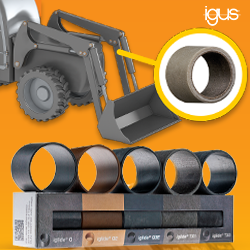Japanese-Kiwi researchers to collaborate on new robotics
A new lightweight robotic arm is just one of the projects to be developed under a new collaboration between University of Auckland and Japanese research teams working on robotics and assistive devices for the elderly.
A new lightweight robotic arm is just one of the projects to be developed under a new collaboration between University of Auckland and Japanese research teams working on robotics and assistive devices for the elderly.
A new lightweight robotic arm is just one of the projects to be developed under a new collaboration between University of Auckland and Japanese research teams working on robotics and assistive devices for the elderly.
Funding of $150,000 from the Ministry of Business Innovation and Employment will be invested over three years for two multi-institutional projects: one from the University of Auckland Bioengineering Institute and Callaghan Innovation, and the other from the Universitys Robotics Research Group and the University of Canterbury.
Like New Zealand, Japan has an increasingly ageing population and the two countries are key collaborators in science and innovation in the robotics field.
"The fit for us is a good one with New Zealands expertise in software and human-robot interaction matching well with Japans strong hardware capability," says Associate Professor Bruce MacDonald who has developed the iRobi Healthbots under the University of Aucklands Robotics Research Group.
The Healthbots can do a range of tasks but trials at Aucklands Selwyn Retirement Village found that, as well as fulfilling a care function, people enjoyed the company of their automated helpers.
"We want to help older people to be more independent and happier and more socially interactive using robots that can do simple tasks, everything from reminding patients to take medication to providing a Skype calling service," Associate Professor MacDonald says.
The new collaboration under the New Zealand Japan Strategic Partnership Building in Robotics and Human Assistive Devices for Elderly Care was supported by MBIE to strengthen the partnership between New Zealand and Japan to help drive economic growth through science and innovation.
The University of Auckland is also involved in a project led by Callaghan Innovation that focuses on improvements to a robotic assistive walking suit being developed in conjunction with the Japanese Shinshu University.
Associate Professor Thor Besier of the Auckland Bioengineering Institute and Dr Angus McMorland of Sport & Exercise Science are teaming up to develop a novel ‘motion controller for the Japanese exoskeleton, and plan to use this new device to assist patients recovering from stroke. The project leverages sensing technology from NZ companies IMeasureU and StretchSense, providing new export opportunities for these high tech start-ups.
Featured Product

igus® - Free heavy-duty plastic bearings sample box
The iglide® heavy-duty sample box provides a selection of five unique iglide bearings, each suitable for use in heavy-duty equipment due to their self-lubricating, dirt-resistant properties. Each bearing material boasts unique benefits and is best suited for different application conditions, though each can withstand surface pressures of at least 11,603 psi at 68°F.
